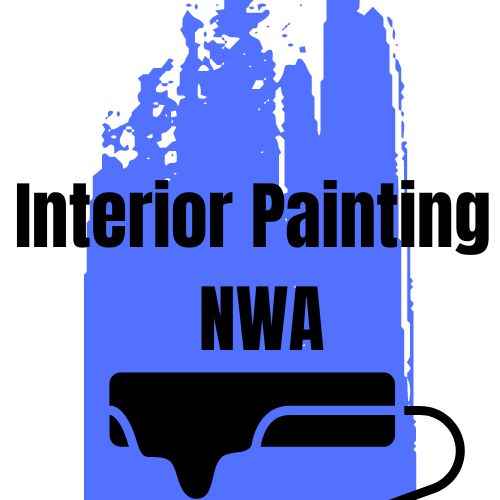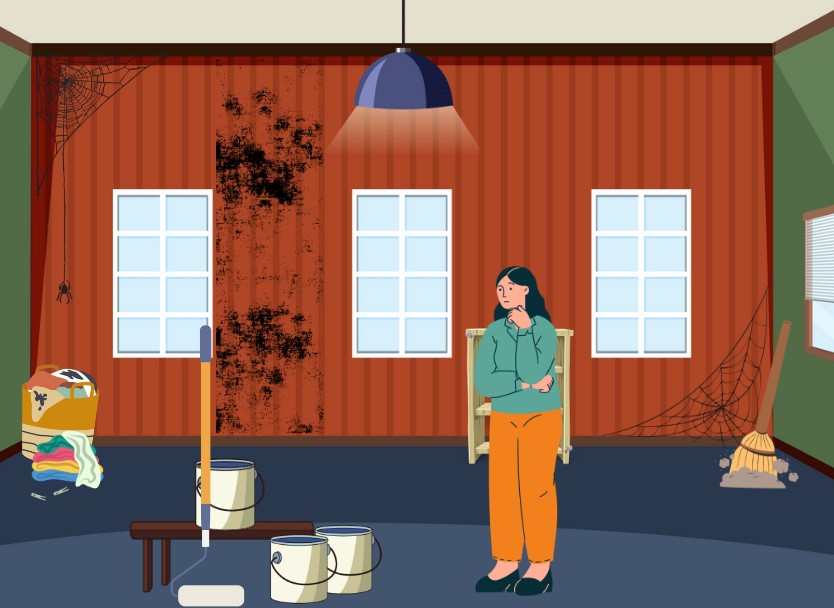If you’re wondering whether it’s okay to paint over dirty walls, the short answer is no.
While it may be tempting to skip the cleaning step, painting over a dirty surface can lead to a number of problems down the line, including chipping, peeling, and a less-than-perfect finish.
In this blog, we’ll dive deeper into why it’s crucial to clean your walls before painting, and what you can do to ensure a smooth, long-lasting finish.
Why You Shouldn’t Paint Over Dirty Walls
When you paint over a dirty surface, the new paint won’t adhere properly to the walls. Dust, grime, and other debris can interfere with the paint’s ability to bond to the surface, leading to a rough, uneven finish.
The paint may also chip or peel away more easily, leaving you with unsightly patches that require touch-ups.
Dirty walls can also impact the longevity of your new paint job. Over time, dust and dirt can accumulate on the surface of the paint, making it harder to clean and dulling its overall appearance.
Read More
Cleaning Your Walls Before Painting
Before you start painting, take the time to clean your walls thoroughly. The process you’ll need to follow will depend on the type of dirt and debris on your walls.
For light dust and dirt, you can simply use a soft, dry cloth to wipe down the surface of the walls.
Pay particular attention to areas around light switches, door handles, and baseboards, as these tend to collect the most dirt.
For more stubborn stains or grease buildup, you may need to use a mild soap and water solution to clean your walls.
Mix a few drops of dish soap with warm water, then use a soft sponge or cloth to gently scrub the surface of the walls. Be sure to rinse the walls thoroughly with clean water and allow them to dry completely before painting.
If your walls are particularly dirty or have mildew or mold growth, you may need to use a stronger cleaning solution or consult with a professional cleaner to ensure that the walls are properly cleaned and prepared for painting.
Read More
Dealing with Glossy or Chipping Surfaces
In addition to dirt and grime, you may also need to deal with other issues before you can start painting. Glossy surfaces, such as those with a semi-gloss or high-gloss finish, can be difficult for new paint to adhere to. To prepare these surfaces for painting, you’ll need to sand them lightly with fine-grit sandpaper to create a rougher surface that the paint can grip onto.
Chipping or flaking paint can also be a problem, as new paint won’t adhere properly to the old, damaged paint. If you notice areas of chipping or flaking paint on your walls, use a scraper or putty knife to remove the loose paint, then sand the surface lightly to create a smoother surface. Be sure to clean the area thoroughly before painting to ensure that the new paint will bond properly.
In some cases, you may need to apply a primer to the surface before painting to ensure that the new paint adheres properly. Talk to your local home improvement store or a professional painter to determine whether a primer is necessary for your project.
What you should take away
Painting over dirty walls may seem like a shortcut, but it can actually lead to more work and a less-than-perfect finish. By taking the time to properly clean and prepare your walls before painting, you can ensure that your new paint job looks great and lasts for years to come.
Remember, every painting project is unique, and the steps you’ll need to follow will depend on the specific condition of your walls. If you’re unsure about the best approach for your project, don’t hesitate to seek the advice of a professional painter or home improvement store expert.
Some other tips to keep in mind when painting your walls include:
- Use high-quality paint: The quality of your paint can make a big difference in the overall appearance and longevity of your paint job. Choose a paint that’s formulated for your specific surface, such as interior walls or exterior trim.
- Invest in the right tools: Having the right tools on hand can make your painting job go much more smoothly. Consider investing in high-quality brushes, rollers, and other supplies that will help you achieve a professional-looking finish.
- Take your time: Rushing through a painting job can lead to mistakes and a less-than-perfect finish. Take the time to properly prepare your walls and apply your paint, following the manufacturer’s instructions carefully.
- Consider hiring a professional: If you’re not comfortable with painting or don’t have the time or equipment to do it yourself, consider hiring a professional painter to tackle the job for you. A skilled painter can ensure that your walls are properly cleaned and prepared, and that the finished product looks great.
Overall
painting over dirty walls is not recommended if you want a smooth, long-lasting finish. By taking the time to properly clean and prepare your walls, you can ensure that your new paint project looks amazing.
Remember to use high-quality paint, invest in the right tools, take your time, and consider hiring a professional if you’re not comfortable with painting yourself.
With a little patience and effort, you can transform your space with a fresh coat of paint that looks beautiful and lasts for years to come.
Read More
FAQ
Is it possible to paint over old paint without removing it?
Yes, it’s possible to paint over old paint without removing it.
Can I just paint over old paint without any preparation?
No, you should prepare the surface by cleaning it and sanding it lightly before painting over old paint.
Do I need to use a primer before painting over old paint?
It’s recommended to use a primer before painting over old paint. This will help the new paint adhere to the surface and prevent peeling or chipping.
Can I use a paint and primer in one product to paint over old paint?
Yes, a paint and primer in one product can be used to paint over old paint. However, it’s still recommended to clean and lightly sand the surface before painting.
How do I clean the surface before painting over old paint?
You can clean the surface with a mixture of soap and water or a specialized cleaner designed for cleaning surfaces before painting.
What should I use to sand the surface before painting over old paint?
You can use a fine-grit sandpaper or sanding sponge to lightly sand the surface before painting over old paint.
Is it necessary to remove all the old paint before painting?
No, it’s not necessary to remove all the old paint before painting. However, if the old paint is peeling or flaking, it’s recommended to remove it before painting.
Can I paint over glossy paint?
Yes, you can paint over glossy paint. However, it’s recommended to lightly sand the surface first to help the new paint adhere to the surface.
How many coats of paint should I apply when painting over old paint?
It depends on the quality of the paint and the condition of the surface.
Generally, 1-2 coats of paint are sufficient when painting over old paint.
How long should I wait before painting over old paint?
It’s recommended to wait at least 24 hours after cleaning the surface and sanding it lightly before painting over old paint.
Can I paint over old paint on exterior surfaces?
Yes, you can paint over old paint on exterior surfaces. However, it’s important to make sure the surface is clean and free of any loose or flaking paint before painting.
Do I need to use a specific type of paint when painting over old paint?
It’s recommended to use a paint that’s suitable for the type of surface you’re painting, such as interior or exterior surfaces.
Can I paint over old paint that’s a different color?
Yes, you can paint over old paint that’s a different color. However, it’s recommended to use a primer before painting to help the new paint adhere to the surface.
Can I use a paint sprayer when painting over old paint?
Yes, you can use a paint sprayer when painting over old paint. However, it’s important to make sure the surface is clean and free of any loose or flaking paint before using a paint sprayer.
Should I seek professional help when painting over old paint?
If you’re unsure about the condition of the surface or the best approach for your project, it’s recommended to seek the advice of a professional painter or home improvement store expert.
Read More

